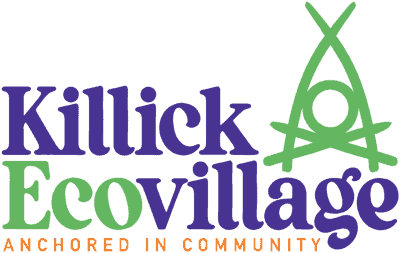Cohousing in Canada
Building Community with Independence
Cohousing is a unique model of living where individuals or families live in their private homes while sharing common spaces, resources, and decision-making.
It’s a way to balance the desire for independence with the benefits of a supportive community.
Residents come together to design their neighborhoods, emphasizing collaboration, sustainability, and shared responsibility. While everyone has their own private home, common areas like gardens, kitchens, and workshops are jointly owned and maintained. This encourages frequent interactions, making it easier to build meaningful connections with your neighbors.
In Canada, where housing affordability has become a critical issue, cohousing and cooperatives provide valuable alternatives to market housing. These models offer pathways to more affordable, secure, and sustainable living options, helping to address housing shortages while promoting community values.
In addition, cohousing and co-operatives reflect Canadian principles of inclusivity, democracy, and collective responsibility. They empower individuals to participate in decisions that directly affect their lives, creating communities that are resilient, sustainable, and responsive to the needs of their members.
Ask Questions - Explore - Join Us
Why choose cohousing?
Cohousing brings back the sense of “community” that has faded in many urban and rural settings. It’s an antidote to isolation, offering a network of support while still respecting individual privacy. The benefits include:
Enhanced Social Connections: Cohousing fosters strong relationships among neighbors, creating a built-in support system.
Sustainable Living: By sharing resources and spaces, cohousing communities can reduce their environmental footprint. Shared gardens, energy-efficient designs, and carpooling are common practices.
Housing Affordability: Sharing communal spaces and resources lowers costs. For instance, instead of each household owning their own lawnmower or large appliances, these items can be shared.
Health and Wellbeing: Living in close-knit communities has been shown to improve mental and emotional well-being by reducing loneliness and fostering a sense of belonging.
Ask Questions - Explore - Join Us
What is a Co-operative?
Ownership, Democracy & Shared Benefit
A co-operative (or co-op) is a business or organization owned and operated collectively by the people who use its services or who work there. Unlike traditional businesses, co-operatives prioritize people over profit, ensuring that all members have a voice in decision-making and benefit from the organization’s success.
In Canada, co-operatives play a significant role across various sectors, from housing and agriculture to credit unions and retail. Housing co-operatives, like Killick Ecovillage, provide an alternative to conventional homeownership, where the focus is on community living, affordability and democratic management.
We are excited to be the first housing co-op in the province of Newfoundland and Labrador since the 1990s!
How does a Co-operative work?
At the heart of every co-operative is a commitment to shared decision-making and collective ownership. In a housing co-op, residents are members, and each member has an equal say in how the community is run. This democratic structure fosters transparency, fairness, and shared responsibility.
The Benefits of Cohousing and Co-operatives
Affordable Housing:
Co-operatives are not-for-profit, meaning housing costs are typically lower than market prices. Members pay to cover the actual costs of the community (maintenance, utilities, etc.), without a landlord profiting from rent.
Security of Tenure:
Members of a housing co-op have more control over their living situation compared to renting. As long as members follow the rules of the co-op, they have secure tenure, ensuring stability.
Democratic Control:
Each member has one vote in decisions about the co-op. This ensures that the community is run by its residents, for the benefit of all. Killick Ecovillage takes this a step further, using sociocractic, consent-based decision-making in our processes.
Sense of Community:
Like cohousing, co-ops often encourage stronger social ties and a more supportive living environment. Members work together to maintain and improve their shared spaces, contributing to a sense of ownership and pride in their community.
We're happy to answer questions and share resources.
Community-Led Housing Ecosystem Support Network
Working on your own community-led housing project?
As we have worked on Killick Ecovillage over the last several years, we realized there wasn't anywhere we could go to learn from other Citizen Developers - the people on the ground in their communities who have a good idea for impactful housing. We kept having to start from scratch and spend time, money, and energy developing our project tools. We realized this was inefficient, and started talking to other groups who were facing the same challenges.
Two of our project members, Wendy Reid Fairhurst and Hillary King, started Reclaim Community CDO to start capturing the invaluable knowledge we were gaining by working on the Killick Ecovillage community.
Through Reclaim, we have helped kick start the Community-led Housing Ecosystem Support Network (CLH-ESN for short) to house a growing body of knowledge on community-led housing - our members can access tools, expertise, and a dedicated community of Citizen Developers to help make their project happen more quickly, with lower budgets, and less mistakes along the way.
Why join the CLH-ESN?
Join a network of supportive Citizen Developers and professionals working on their own community-led projects across the country!
Using Creative Commons licensing, members can access over 250 tools to help streamline the pre-development process for community-led housing.
Embrace the spirit of community and reciprocation. Share your project tools and resources to help us expand the our knowledge to better support future CLH projects.
The Cohousing Co-op approach (which is somewhat novel in Canada, where cohousing condos are more the norm) means that all the benefits of cohousing are accessible to people with more diverse incomes.
